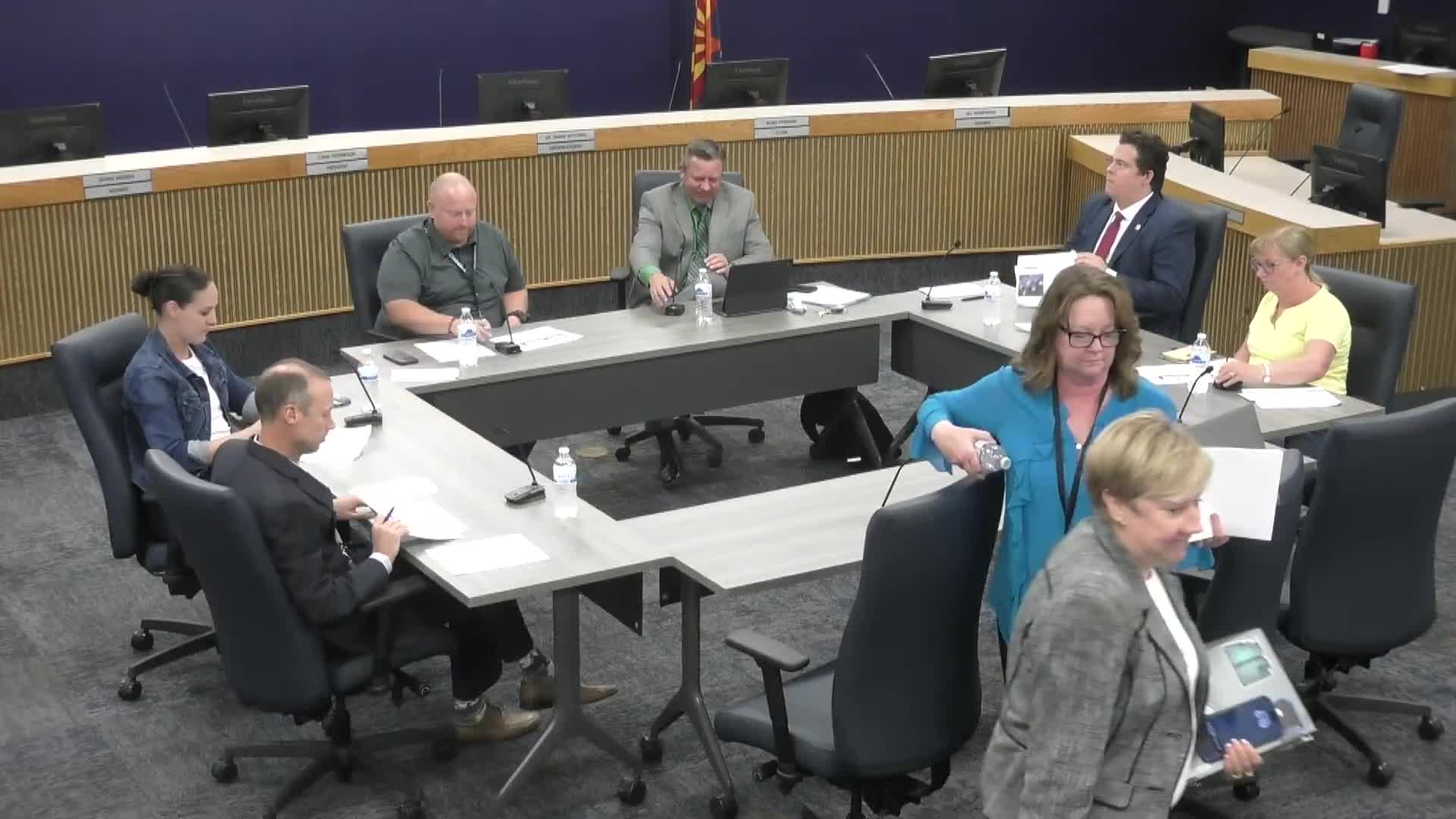Gilbert Unified technology leaders outline cybersecurity posture and Cisco enterprise renewal; district to add XDR and expand student filtering
Get AI-powered insights, summaries, and transcripts
Subscribe
Summary
District technology staff briefed the board on cybersecurity efforts including a proposed Cisco enterprise agreement renewal, expanded XDR (extended detection and response), use of state resources (DHS Duo and CrowdStrike), and GoGuardian student-safety tools.
Gilbert Unified District technology leaders briefed the governing board on the district’s current cybersecurity posture, planned security upgrades and vendor arrangements, including a proposed renewal of the district’s Cisco security enterprise agreement and the planned addition of extended detection and response (XDR).
Chief Technology Officer John Caslano, Director of Infrastructure and Cybersecurity Scott Hassey and Network Supervisor James Moore described tools now in place — such as network firewalls, Cisco Identity Services Engine (ISE), Umbrella DNS filtering, Cisco Secure Client and GoGuardian for student device management — and said the district will add XDR to centralize threat detection and automate some defenses.
Presenters summarized the district’s multi-year security work: a 2020 incident-response and disaster-recovery plan, a 2021 enterprise agreement for Cisco security products, a third-party penetration test last year, and ongoing phishing simulations and staff training. Caslano said the technology services team comprises roughly 54 people and that the department regularly surveys staff to improve support.
Officials explained the difference between products: Umbrella provides network-wide DNS/web filtering that can see traffic from non-Chromebook devices (for example HVAC controllers), while GoGuardian focuses on Chromebooks and classroom-oriented student features. The district uses GoGuardian’s Beacon product to detect student safety risks; technology staff said Beacon alerts campus administrators when automated signals indicate possible self-harm or harm to others and that the system has prompted life-saving interventions in the district.
On vendor costs and procurement, board members asked whether the Cisco renewal would add annual costs. District staff said the renewal restructures the existing set of security products and adds XDR; the district expects to pay roughly $511,000 per year (about $2.5 million over five years) for the renewed enterprise agreement, which bundles multiple security components. Staff also said the Arizona Department of Homeland Security offers certain services (multifactor authentication via Duo and endpoint protection via CrowdStrike) that the district plans to use in combination with its Cisco suite; some DHS offerings are available to the district at no cost through state programs.
Staff described planned changes to student- and teacher-facing tools. GoGuardian teacher tools — previously an optional, school-paid component — will be included in the district’s pricing for the next contract period, and the district intends to phase the tool in with training. Technology leaders said GoGuardian admin and Beacon will continue to be part of the district’s student-protection and filtering strategy. They also said the district is evaluating parent-facing features that would let parents control district Chromebooks outside school hours and plan to pilot those controls next year.
The board did not take formal action on the presentation; items related to the enterprise agreement and other security contracts were included on the meeting’s consent agenda and were approved earlier in the meeting as part of the consolidated consent vote.
